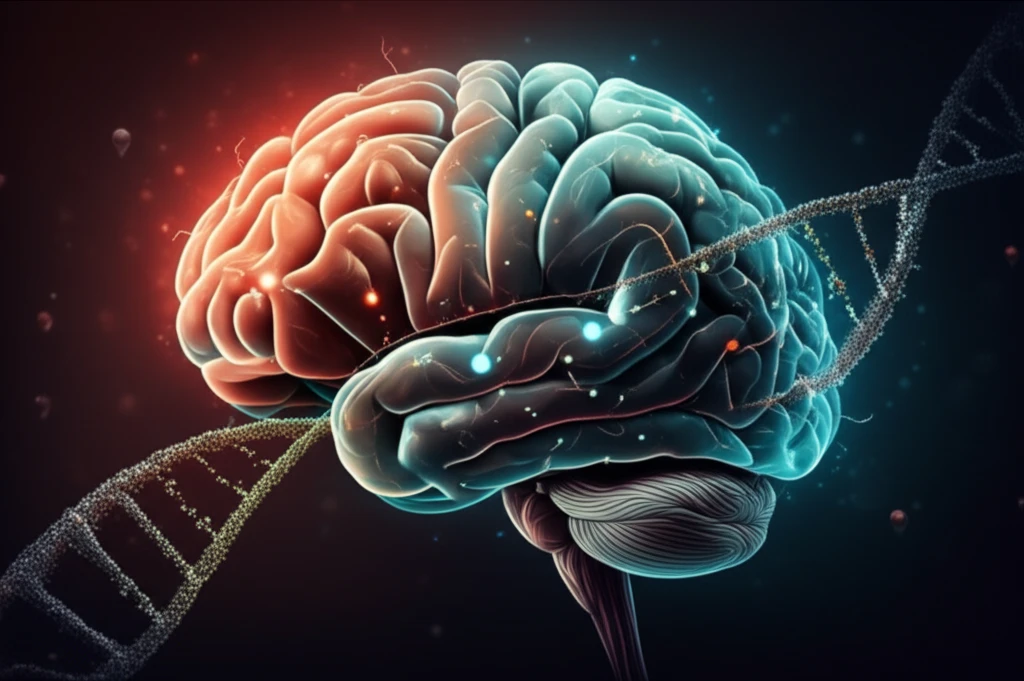
Decoding Bipolar Disorder: How Genes and Environment Interact
"New research sheds light on the intricate relationship between genetics, environmental factors, and DNA methylation in bipolar disorder, offering potential paths for targeted treatments."
Bipolar disorder (BD) is a complex mental health condition characterized by extreme shifts in mood, energy, and activity levels. These shifts range from periods of intense elation, irritability, or energized behavior (manic episodes) to periods of profound sadness, hopelessness, or loss of interest in activities (depressive episodes). Understanding the underlying causes of BD is crucial for developing effective treatments and improving the lives of those affected.
While the exact causes of bipolar disorder remain elusive, research suggests that a combination of genetic predisposition and environmental factors plays a significant role. Epigenetics, the study of how your behaviors and environment can cause changes that affect the way your genes work, offers a crucial lens through which to understand this interaction. One key epigenetic mechanism is DNA methylation, a process that can alter gene expression without changing the underlying DNA sequence.
Recent studies have focused on how DNA methylation patterns might contribute to the development and progression of bipolar disorder. By examining specific genes involved in brain function and mood regulation, researchers are beginning to unravel the complex interplay between our genes and our experiences. This article explores a recent study that investigates the role of DNA methylation in the relationship between two important molecules in the brain: prodynorphin and brain-derived neurotrophic factor (BDNF), offering insights into potential therapeutic targets for BD.
Unraveling the Genetic and Environmental Puzzle of Bipolar Disorder

A recent study published in 'Progress in Neuro-Psychopharmacology & Biological Psychiatry' delved into the role of DNA methylation in bipolar disorder. The research team, led by Claudio D'Addario, Maria Carlotta Palazzo, and Bernardo Dell'Osso, investigated the relationship between prodynorphin (PDYN) and brain-derived neurotrophic factor (BDNF), two molecules vital for brain function and mood regulation. The study aimed to understand how DNA methylation influences the expression of these genes in individuals with bipolar disorder.
- PDYN Expression: Prodynorphin (PDYN) mRNA levels were significantly reduced in subjects with BD-II but not in those with BD-I, when compared to healthy controls.
- DNA Methylation: An increase in DNA methylation at the PDYN gene promoter was observed in BD-II patients compared to controls.
- Pharmacotherapy Impact: Patients on mood stabilizers (lithium and anticonvulsants) showed lower DNA methylation at the PDYN promoter.
- Correlation between PDYN and BDNF: A significant positive correlation was found between DNA methylation of the PDYN promoter and brain-derived neurotrophic factor (BDNF).
- DNMTs and MeCP2: Upregulation of DNA Methyl Transferases 3b (DNMT3b) and methyl binding protein MeCP2 mRNA levels was observed in BD-II subjects.
Implications and Future Directions
This research provides valuable insights into the epigenetic mechanisms underlying bipolar disorder, particularly the role of DNA methylation in regulating the expression of PDYN and its relationship with BDNF. The findings suggest that targeting DNA methylation processes could offer a novel approach to treating BD, especially BD-II. Further research is needed to explore the potential of DNMT inhibitors and other epigenetic interventions to improve outcomes for individuals with bipolar disorder. Understanding these complex interactions opens the door to more personalized and effective treatments, ultimately improving the quality of life for those living with this challenging condition.
